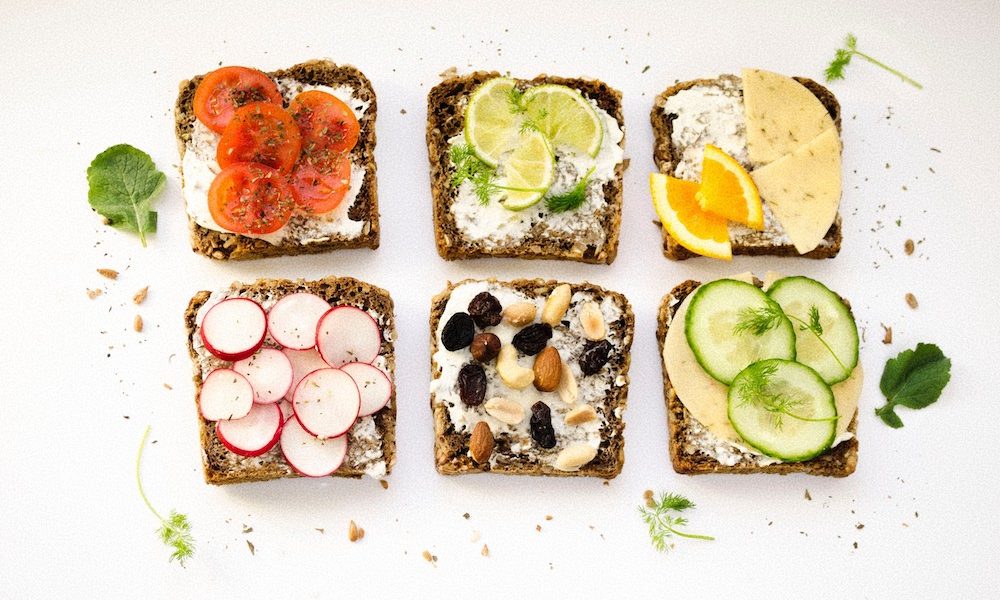While intuitive eating sounds simple, it can be difficult for those whose diet rules have been their norm. Let’s break down 5 practical ways to start.
BY: SARAH SCHLICHTER, MPH, RD
More and more people are becoming aware of intuitive eating, its health benefits, and how it might be the answer to smashing our diet culture.
However, they don’t quite understand how to start it. On the surface, it sounds quite simple: honor what your body is telling you when it’s hungry or full.
But the reality is that intuitive eating can be hard, confusing, and scary in the beginning.
That’s especially true if you’re coming from a diet mentality, where you may find yourself thinking, “I can eat anything I want? I feel like I’ll just go crazy,” or “I won’t eat anything [healthy]”.
It’s a whole new way of thinking and eating.
Just like any new skill you acquire, you don’t just become an intuitive eater overnight. In fact, you never really achieve perfect intuitive eating, because that doesn’t actually exist. It’s a continual process that you engage in, where you are constantly learning more about yourself: your wants, needs, and habits.
You’re checking in and giving your body what it’s asking for. But because we’re human beings with ever-changing needs, we never really achieve the end of intuitive eating.
Here are some practical tips to gradually work in the principles of intuitive eating into your everyday.
1. Be Spontaneous
Do you wake up and head out on auto-pilot to make the same thing for breakfast every morning, without even thinking about it? But, what if you really wanted something heavier, lighter…or just something different?
Meal routines can be a good thing, but a pre-packed and predetermined lunch may not be what you want one day. Are you used to packing a sandwich for lunch every day? Try taking yourself out spur of the moment and order what you really want. It can be freeing (and challenging) to decide what you truly want to eat in the moment.
2. Tune In To How Certain Foods Make You Feel
Maybe you’ve noticed a pattern of going to bed overly full and not waking up hungry. Perhaps you try a night without snacking after dinner. Or, maybe it’s the complete opposite and you wake up in the middle of the night hungry, or can’t wait for breakfast the next morning. That might mean you may need a bigger dinner or a bed-time snack.
Check in with your body – how are you feeling? What do you need? Are you too busy to pack or eat an afternoon snack? That afternoon snack may give you that burst of energy you need to finish the day, so ignoring that afternoon hunger cue isn’t doing you any favors. Food has the ability to energize us. Try to eat more of the foods that make you feel good.
3. Have Trust In Yourself
Are you too nervous to include your beloved pizza in your food routine out of fear that you’ll start eating it all the time? Just try adding it in once.
If you find yourself craving pizza the following day, have it again and again, anytime you feel like it, as habituation will reduce the likelihood of your cravings over time. Learning to trust yourself and your food choices is part of the process of tuning in to your body. If you don’t add in your “fear” foods, you will keep fearing them.
4. Feel Your Feelings (Without Food)
In many ways, eating is emotional–so it’s nearly impossible to fully separate your food from your feelings. However, it’s necessary to have other coping strategies for feelings such as loneliness, boredom, anxiety and sadness. What other outlets can you utilize? What’s worked in the past?
Realizing that food won’t solve these feelings and finding other ways to distract or nurture yourself will play an important part in your relationship with food–and with yourself.
5. Ask Yourself What Satisfaction Feels Like
While eating a lot of vegetables may fill you up, will they leave you satisfied if the meal you actually wanted was a sandwich? Probably not.
Eating should be both a pleasurable and satisfying experience. When you eat what you truly want in an enjoyable environment, you are more likely to feel full and satisfied. You may even find that it takes less food than you originally thought to reach that satisfaction level. Your body will be in tune with satisfaction and fullness together when you are in tune with your body.
Remember, intuitive eating isn’t all or nothing. It is something that you will be constantly practicing and working towards, because no one is a perfect intuitive eater all the time. But that’s the great part – you take all expectations of perfection off the table.
And that alone can be freeing.
Adapted from the original article.
HEADER IMAGE: OLA MISHCHENKO
Sarah Schlichter, MPH, RD is a Registered Dietitian with a Master’s in Public Health, a freelance writer, nutrition counselor and recipe developer. In her nutrition practice, she works 1-1 with athletes and those looking to normalize their relationship with food through an intuitive eating approach. Learn more at www.bucketlisttummy.com.

